Environmental Ethics and Confucius
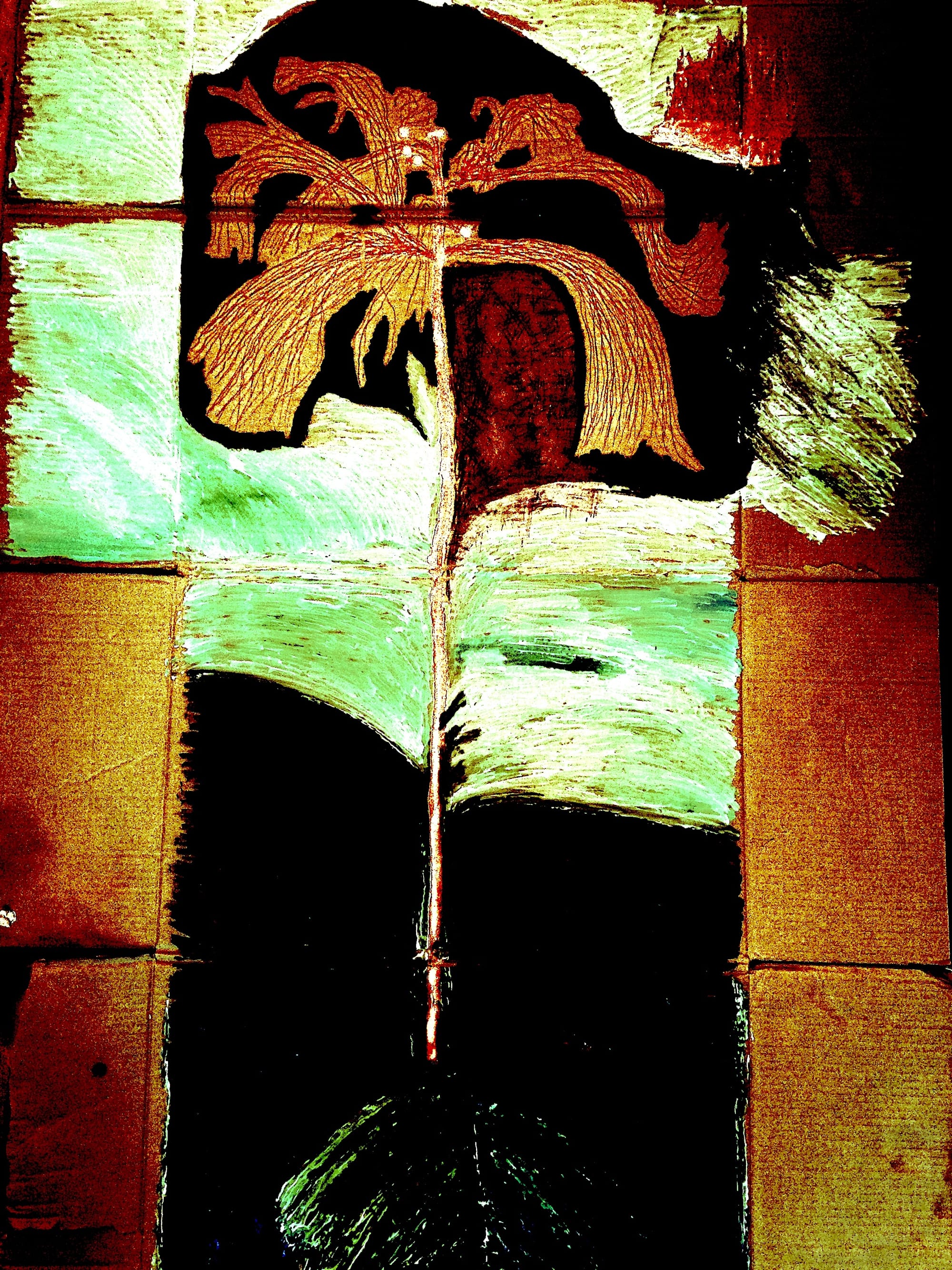
Interview by Richard Marshall
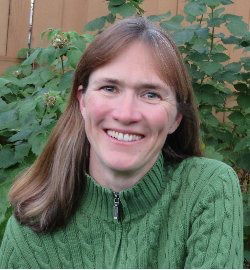
'Confucius did not support social withdrawal, even if morally motivated. It’s true that he thought it would be unconscionable to serve as an official in a deeply corrupt regime. However, he criticized those who tried to flee society to avoid moral corruption. He seemed to see this as an evasion of responsibility, and perhaps even more pointedly, of the demands of full personhood (which requires social engagement).'
'I worry that too much focus on the technical can draw attention away from the social, ethical, and political dimensions of environmental decision-making in a complex, diverse, and globalized world.'
'Environmental literacy isn’t just about having the right set of facts -- it’s not just a matter of propositional knowledge. Environmental literacy, in my view, also has an affective component and involves know-how.'
'I’m not all that worried that restored nature is ‘fake’ in the sense that concerned Elliot (i.e., lacking an uninterrupted natural genealogy), and in many cases, it’s a lot better to restore ecological systems then to leave them in a degraded state.'
'Climate change, for example, is not something that will be “solved,” but rather navigated over time – people across the world will need to figure out (as they are doing now) both how to respond to climate change and how to live with it. We’ll also need to negotiate and renegotiate relationships with one another.'
'My own response has been not to dwell on the natural/human distinction, but rather to argue that it’s not just me that matters, not just “us” – a particular group of human beings with whom one identifies – that matters, and not just human beings that matter. There’s a big, diverse, world out there, inhabited by all sorts of creatures, human and otherwise.'
Marion Hourdequin specializes in environmental philosophy. Her research and teaching interests also include ethics, comparative philosophy, animal studies, and philosophy of science. Marion Hourdequin's current research focuses on climate ethics, climate justice, and the social and ethical dimensions of ecological restoration. Here she discusses Confucius and how to live in societies of moral deficiency, Confucius and not fleeing from society, the Anthropocene, ethics and shared empathy and shared intentionality, integrity, Confucius and virtues, the value in individual unilateral reductions, the doing/allowing distinction, environmental literacy and practical wisdom, ‘faking nature’ through restoration, and our current relationship with animals and nature.

3:16: What made you become a philosopher?
Marion Hourdequin: I studied ecology and evolutionary biology as an undergraduate, and didn’t delve deeply into philosophy until graduate school. My initial interest in philosophy grew out of questions about scientific practice. As I began to design and carry out ecological research projects as a biology graduate student, I found myself asking questions about the epistemology and ethics of science. For example, I began to wonder how experimental design affects the picture of the world we gain through scientific investigation, how scientific models represent (or fail to represent) reality, and what role values play in the scientific process. My first real foray into philosophy was through feminist philosophy of science – I found that thinkers such as Helen Longino, Ruth Hubbard, Evelyn Fox Keller, Ruth Bleier, and Sandra Harding were asking and trying to answer some of the same questions I was reflecting on as a biologist. But there wasn’t much space to talk about these questions within the discipline of biology itself, so I spent a lot of time reading on my own, and eventually drifted over to the philosophy department, where I found some wonderful mentors who helped me get started as a newcomer to the field.
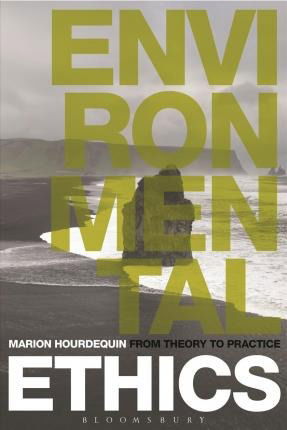
3:16: Ecology is a big part of what you think about, but let’s start with your thinking regarding Confucius. We live in societies of serious moral deficiency as did he. How did Confucius deal with this issue?
MH: Confucius had an interesting and nuanced approach to this issue. He lived in a fractious time, where various local rulers competed for power and land, and he was dismayed and frustrated by the state of his society. He believed that the leaders of his time had lost their moral mandate to rule, and he criticized corrupt rulers for neglecting the people for the sake of their own enrichment, and co-opting traditions for their own benefit.
In situations like this, it’s often tempting – for those who have the option – to withdraw from society in an effort to preserve their moral purity, or simply to craft a life free from corrupt and damaging social systems. However, Confucius’s response was to remain engaged with society as a social critic and mentor to others. He didn’t hold government office, but advised those who did, and he remained hopeful that the Dao– or Way – would be restored. (Dao is a tricky, but important, term in Chinese philosophy. Here, it suggests both the right way to do things and the harmony that emerges from doing things in the right way, or following the right path.) In other words, Confucius was committed to the long-term project of re-establishing virtuous rulers and harmonious social relations.
From a contemporary perspective (and particularly a contemporary U.S. perspective, in which social progress is often conceptualized as continuous improvement through time), Confucius might seem a strange sort of reformer. He advocated a return to traditional rituals – which supported values such as respect and care – as a way of renewing moral life. In this sense, he was socially conservative, and some scholars have critiqued Confucius’s views on this ground, arguing that Confucius equated morality with tradition, or with convention.
But I don’t think this is the only way of reading the Analects. I’ve argued that Confucius is better interpreted as valuing traditional rituals not out of blind adherence, but because they express and sustain certain values. Confucius doeslament the modification of certain rituals, but largely when these changes undermine their meaning. For example, he thinks that a person should bow at the bottom of the stairs before ascending and approaching the ruler, as is traditional. This practice shows respect, thus Confucius resists the newer practice of bowing after ascending the stairs, which he sees as arrogant. On the other hand, in the same passage, Confucius suggests that it’s fine to exchange a silk ceremonial cap for the traditional linen one. The change of material doesn’t alter the meaning of the ritual, and silk is more affordable. Confucius was not a strict traditionalist; instead, he sought to maintain and revive traditions that sustain the moral fabric of society. Relatedly, he was not bound by convention. He recognized certain widely-accepted practices as problematic or narrow-minded, and in such cases, he was willing to buck convention. He insisted that people should not merely “follow the multitude” (Analects15.28), but think for themselves about what is right.
So Kongzi’s approach to social reform included reclaiming and revitalizing morally important traditions and challenging conventional views, but he also had tremendous faith in the power of single individuals – particularly those in positions of leadership – to change the moral tenor of society as a whole. His teachings thus emphasize the idea that a humane and compassionate ruler can transform the world, inspiring others to goodness through their example. His teachings weren’t directed only to those in formal positions of power, however. In general, Confucius believed that people can catalyze positive change through the development of virtues such as courage, compassion, integrity, and respect, and overall, humaneness or ren.
3:16: Withdrawal to avoid moral contamination may have been possible back then but surely there’s no chance of doing that today – we’re all far too dependent on the society we live in to do that aren’t we? So is Confucius relevant for moral thinking today?
MH: Despite his pointed critiques of society, Confucius did not support social withdrawal, even if morally motivated. It’s true that he thought it would be unconscionable to serve as an official in deeply corrupt regime. However, he criticized those who tried to flee society to avoid moral corruption. He seemed to see this as an evasion of responsibility, and perhaps even more pointedly, of the demands of full personhood (which requires social engagement).
Confucius’s view strikes me as deeply relevant today. Although many aspects of our current context are radically different, others resonate deeply: in the U.S., for example, the political climate is fractious and divided. Basic institutions are challenged, and norms that have served as touchstones are flouted regularly. The current political climate, in my view, bears out Confucius’s claim that leaders can significantly influence the tenor of society as a whole – though I think we are seeing this play out in the negative, and not in the positive way that Confucius envisioned, where the junzi, or humane person, could transform others through their positive example.
Nevertheless, I think Confucius offers the hopeful prospect that exemplary persons can inspire others, and contribute to positive social change. This is encouraging to me in a context where it can seem that individuals have little influence in the face of institutions much larger than themselves. Some contemporary scholars have criticized the idea of individual action as too small and too apolitical to matter, but on the Confucian view, the boundary between “individual action” and institutional change is not sharp. Each person is connected to others through their relationships, and everyday actions matter to others with whom we are in relationship, and to society more broadly.
3:16: I read that the Holocene is being displaced by the Anthropocene, or has been. What, if any, do you think are the challenges facing our ethical choices that are brought about because of this shift? Are old traditional perspectives on human-nature relationships now completely displaced? In fact, do you think that this requires us to rethink our self-image somewhat – and thinking back to traditionalists like Confucius – several options that were available are now not?
MH: I have mixed feelings about the “Anthropocene” label, especially because it means so many different things to so many different people. From one perspective, it is supposed to function primarily as an umbrella under which to describe human influences on the planet, through climate change, persistent organic pollutants, nuclear testing, etc. But the term often takes on a normative role. For example, ecologist Erle Ellis argues that we are now responsible for the Earth as a whole, suggesting that in today’s world, “there is no alternative except to shoulder the mantle of planetary stewardship.”
I have all sorts of concerns about this sort of framing of the Anthropocene. First of all, I object, generally, to the idea that “there is no alternative.” That’s almost always false, and when people say that there’s no alternative, they often mean that there’s no alternative they like or are willing to accept. Second, the fact that human activities are significantly influencing the earth’s climate and ecosystems doesn’t entail that human beings ought to manage the planet as a whole. Third – and this is a point that philosopher Chris Cuomo and many others have emphasized – Ellis’s declaration obscures questions about agency, responsibility, and power. Who, specifically, will be “shouldering the mantle of planetary stewardship,” and for that matter, whose activities have been and continue to be contributing to the condition now described as the Anthropocene? Contributions to greenhouse gas emissions, plastic pollution, e-waste, and ecological damage are not distributed evenly among the planet’s 7.6 billion people, nor has the historical distribution of environmental impact been even. Lastly, I think there’s something a bit hubristic and perhaps narcissistic about naming an epoch after ourselves. On the one hand, some hope that the idea of the Anthropocene will serve as a wake-up call, highlighting humans’ transformative influences on the planet. On the other hand, I worry that the term draws ever more attention the human beings, putting us as the center of things – and many environmental philosophers have argued that anthropocentrism (human-centeredness) is at the root of the problematic worldviews and value structures that underlie ecologically and socially unsustainable practices.
So I think it’s important to be very careful about Anthropocene discourse, and to be more explicit about the assumptions embedded in any normative claims that purport to follow from it. With that said, there are some distinctive features of the contemporary context that are worth attending to. I’d hesitate to say “that traditional perspectives on human-nature relationships [are] now completely displaced,” though, because I think there’s a lot of diversity in perspectives on human-nature relationships among people and across time. Beginning in the late 1980s and extending through to the present, there has been significant critique of the “received view” of the natural as fully distinct from the human, and of wilderness as pristine and humanity as a sullying influence. These critiques have been valuable in responding to a particular strand of (primarily U.S.-based, twentieth century) environmentalism, but the “received view” has never been the only view of human-nature relations, even if it had significant influence at certain moments and in certain places. Legal scholar Jedediah Purdy has argued that even U.S. environmentalism, which in recent decades has been critiqued as overly elite, wilderness focused, and inattentive to justice issues, has a much longer and more diverse history than the critique suggests.
So what is important or distinctive about the contemporary situation, whether it’s described as the Anthropocene or not, with respect to human relations to the broader (natural) world? There’s a lot to say here, but I’ll just mention one thing. I think that various contemporary scientific and technological tools provide different perspectives than were available in, say, Confucius’s time, or even a few hundred years ago. We now have complex global climate models, for example, and there are more than 2,000 satellites orbiting the earth, many of which are collecting observational data. These technological capacities provide different ways of understanding and conceptualizing the Earth and humans’ relationships to it – they allow collection and aggregation of information from across the globe, for instance, in ways that were impossible a century ago. This can provide a more systemic or holistic view of the planet, allowing human beings to track global trends of various kinds, and to better understand the combined effects of various activities (deforestation, burning fossil fuels, chemical fertilizers, etc.).
However, these same technological capacities can also amplify aspirations of large-scale control, and may obscure important characteristics and features of the local. With respect to global climate change, for example, much of the discussion of mitigation at the international level has focused on ppm – parts per million of carbon dioxide in the atmosphere – which is certainly important. But reducing ppm requires changes in infrastructure, economies, and social organization – and none of that can be fully captured or understood simply by monitoring the atmosphere.
Also in the climate arena, there are emerging discussions of global-scale geoengineering, efforts to intentionally intervene in the earth’s climatic system to counteract global warming. For example, scientists have begun to model the effects of injecting aerosols into the upper atmosphere in order to reflect a small proportion of incoming sunlight back into space, cooling the planet. Although this idea was raised many decades ago (and largely ignored), modeling capabilities are much more sophisticated than they were then. This is a double-edged sword, in my view. Today’s models provide better opportunities to explore various potential interventions, but they can also be misleading.
Some of the triumphant claims about the potential for solar geoengineering to safely cool the planet are based on models that don’t simulate the actual processes that would be involved; instead, the modelers simply “turn down the sun” in the models. Unsurprisingly, when you turn down the sun, the planet cools – but these models can’t tell us anything about the behavior of the aerosol particles that would be used, how long they would remain suspended in the stratosphere, and what secondary and tertiary effects they might have. So models can provide false confidence if not used and communicated carefully, and they can also drive efforts for ever more refinement and control. At one geoengineering-related meeting I attended last year, one scientist argued that “we need to lock down the stratosphere” through a network of better monitoring systems. For me, that language evoked pretty powerful aspirations of control.
More generally, I worry that too much focus on the technical can draw attention away from the social, ethical, and political dimensions of environmental decision-making in a complex, diverse, and globalized world. I think it’s important to keep those latter dimensions in view in what many are calling “the Anthropocene.”

3:16: A key to your approach to ethics is our capacity for empathy and shared intentionality because you argue that they allow us to be motivated by reasons that aren’t linked to any pre-existing ends. Is this right? Can you say what your argument is and how it counters the internalist about reasons position of someone like Richard Joyce who links rational motivation to existing ends?
MH: You’ve quite nicely and succinctly summarized my view. I wrote on this topic in part because I find the internalist view about reasons implausible and also limiting. The internalist view holds that one can only have a reason to do something if that reason connects up with a pre-existing desire or interest one has. To make this more concrete, it may be helpful to consider an example. Do I have a reason to take the 9 am bus to Denver tomorrow? The internalist says that if I have a desire or interest that could be served or realized by taking the 9 am bus, I have a reason to take it. If I have no end that would be so served, I do not.
Now that all seems straightforward enough, and it captures some common intuitions. For example, reasons for action are often linked to desires: if I am hungry (I have a desire for food), then I have a reason to eat. Conversely, if I have no desire for food this morning (and no other desires that would be fulfilled by eating a morning meal), then it seems that I have no reason to have breakfast today. Even for simple cases like these, complications can arise, but the complications are significant when one applies the internalist view to the ethical realm. For instance, if a person has no desire that would be served by not cheating on their taxes, do they have no reason not to cheat? Many people think that ethical requirements shouldn’t be contingent on the particular desires of individuals in this way. But if reasons don’t connect up with an agent’s desire or interest, the objection goes, then how do they get their motivational force?
At the heart of my argument is the conviction that we are deeply social beings, and that our ends are shaped through engagement with others: the fact that others have certain emotions, desires, and interests can provide both normative and motivational reasons for a person to act. The motivational aspect of this view is supported by empirical work in social psychology, which suggests that human beings have capacities to share others emotions through empathy and orient toward others’ goals through shared intentionality. The normative dimension resonates with many broadly Kantian views (though I don’t consider myself a Kantian), which hold that others’ ends can provide normative reasons. At the core of morality, on this view, is the idea that one’s individual ends aren’t all that matter. Morality is about recognizing oneself as a person with ends in a broader world where other persons and other living things have ends that matter, too.
3:16: So when we look at the challenge of climate change, for example, we often ask whether there’s much we can do as individuals. Are there arguments from moral integrity that we ought to take seriously here?
MH: Some people are skeptical of integrity, and Ralph Waldo Emerson is noted for saying that “a foolish consistency is the hobgoblin of little minds.” Inconsistency may not be all bad (surely a “healthy eater” deserves a donut once in a while), but I think there is something to be said for a certain kind of consistency, specifically the integrity involved in striving to live in accordance with one’s core values. Understood in this way, integrity involves aligning one’s conviction with one’s actions. Why does this matter? I think Mark Halfon’s view is compelling: he argues that integrity involves a certain kind of moral purpose, a commitment to “live a certain way of life” or be a particular kind of person. This kind of commitment can cut against exclusively consequentialist reasoning. For example, integrity might provide a reason to resign from a committee whose work is deeply at odds with my values, even if I know that my resignation will do little to change the outcome of the committee’s efforts. Or it might mean visiting my Senator’s office to register my dissent against an unjust policy, even if I know that my protest is likely to have little effect on that Senator’s votes.
With respect to climate change, this means that if I care deeply about the harms and injustices climate change is causing, I should recognize my role in contributing to climate-related harms and consider what someone in my position can do to reduce these harms (whether from my own emissions or from broader systems). This is not just a matter of superficial virtue signaling; there are cognitive and epistemic commitments that accompany the ethical ones, so fidelity to one’s climate concerns doesn’t support just any action, but rather thoughtful action. Of course, sometimes one’s action won’t be enough to make a significant difference, or even any difference at all. Nevertheless, in such cases, integrity can support what Stephen Gardiner describes as “bearing witness” in the face of moral wrongdoing.
As with many virtues, I think there’s a mean with respect to integrity. Each of us must balance multiple values, and appeal to integrity should not be used as a cudgel to castigate people who are concerned about climate change for driving their sick child home from school, or taking a plane flight to visit their parents every so often. Nevertheless, integrity can be helpful in sustaining commitments to things we care about, especially in the face of cynicism about the value of individual actions.
3:16: And returning to what we discussed earlier, does Confucian philosophy also have valuable contributions to make in this issue?
MH: Yes, I think so, because Confucianism emphasizes the relational dimensions of personhood, and it challenges the sharp dichotomy between individual and collective action. From a Confucian point of view, “individual action” is never justindividual: it takes place in a social context and affects others, not only through its consequences but also by expressing certain values and shaping the social context itself. Confucianism invites people to conceptualize themselves as part of a community comprised of individuals who themselves are constituted in relation with one another. The idea of individual action as inert makes little sense from this point of view.
3:16: Overall then, do you think that there is value in individual unilateral reductions?
MH: I do, but context matters. Emissions reductions are especially relevant for those of us who are relatively wealthy and consume more than we need to live good lives – but I don’t really like framing it in terms of “individual unilateral reductions,” because that makes these reductions sound so distinct from broader climate responses. I think it may be more constructive for those of us who have the capacity to make reductions and choose to be less profligate in our energy use to think about our efforts as one piece of a broader social transformation that is needed, and to look for ways to make connections between individual decisions and broader systemic change.
In my view, social transformation in response to climate change should enable better access to affordable, renewable sources of energy, so that it is not only the wealthy who can “go green,” and it should include efforts to mitigate the potential negative social and ecological impacts of decarbonization, such as job losses or climate mitigation projects that generate new injustices. I also have a pretty pluralistic view about what individuals should do (whether in terms of personal consumption or political action), because each of us is positioned somewhat differently in terms of the capacities we have and the constraints we face.
3:16: How far do you think the doing/allowing distinction can be defended, especially in the context of environmental policy?
MH: That’s a complex question, and it ties back to issues related to the Anthropocene, raised earlier. The doing/allowing distinction rests on moral intuitions that many, but certainly not all, people share. To take an example, it’s generally considered worse to punch someone for no reason than to fail to prevent someone else from punching someone for no reason. Similarly, people often get moral credit for doing something generous or helpful, but not for merely allowing others to act in generous or helpful ways. There’s plenty to argue about with respect to these individual cases, but in terms of environmental policy, it gets even more complicated. The tricky thing is that the intuitions that drive the doing/allowing distinction tend to resonate most strongly in cases that involve individuals, and where the causal pathways are clear and direct.
For example, many people would likely say that it’s morally worse for a person to dump oil in a river (a “doing”) than to fail to prevent someone else from doing so (an “allowing”), or that it’s worse for me to kill an endangered animal than allow it to die of disease. But things get a bit messier at the level of environmental policy, because governments generally are expected not only to avoid directly harming people or the environment but also to prevent harm to people and the environment, and what’s more, many contemporary environmental problems have a very messy causal structure, so it’s not always straightforward to disentangle doings from allowings. Also lurking in the background here are distinctions between things that happen “naturally” and those that are human-caused. But the pervasiveness of human influence on the planet has begun to muddy this distinction. This has led some to suggest that human beings need to take more or less equal responsibility for everything, (basically obliterating the doing/allowing distinction). I’m not convinced that’s the right conclusion to draw, but really unpacking my reasoning would take a while.
3:16: You argue that environmental literacy requires practical wisdom. Can you explain this and what this means in terms of environmental education.
MH: The core idea is that environmental literacy and environmental education are not just about knowing certain facts or understanding particular ecological concepts. It’s valuable to know something about the diverse organisms with which we share the planet, and to understand how human actions are affecting ecosystems locally and globally. But merely knowing that climate change is happening or that many species of birds are imperiled doesn’t constitute environmental literacy in a robust sense. Environmental literacy isn’t just about having the right set of facts -- it’s not just a matter of propositional knowledge. Environmental literacy, in my view, also has an affective component and involves know-how. In many ways, the perspective that David Havlick and I articulated many years ago resonates not only with an Aristotelian conception of practical wisdom, but also with Aldo Leopold’s emphasis on the importance of contextually-sensitive knowledge, education of both “head and heart,” and connections between knowledge and responsibility.
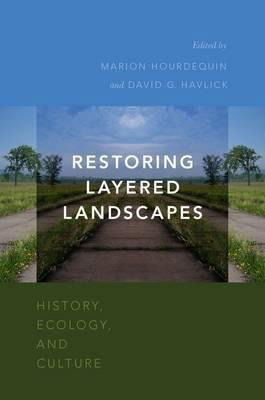
3:16: Some environmental policies are about restoration of damaged nature to a former ‘pristine’ state. But against this sort of thing, people have argued that these restoration projects lack authenticity and are therefore like forgeries. Can you first outline for us the thrust of the authenticity argument for us, and perhaps give an example from real life?
MH: The basic argument for ‘faking nature’ through restoration was laid out in an article and later book by philosopher Robert Elliot. Elliot’s core worry was that restoration would be used as an excuse to justify ongoing degradation of nature. He was concerned that restoration might provide the impression that any damage done to nature could simply be fixed after the fact. But this impression would be mistaken, in Elliot’s opinion, because there is an aspect of value that restoration can’t replace, and that is the natural genealogy of a place or ecosystem. Once humans interfere in an ecosystem, they disrupt the (nonhuman) processes that make it a natural ecosystem. Because ecological systems gain some of their value by being a result of natural processes, any human influence – even through restoration – compromises that naturalness and that source of value, even if the restored ecosystem is (but for its genealogy) just like the original.
Elliot uses an analogy of art forgery. To take a variant on his example, imagine a technology that could perfectly recreate a “Picasso” painting – the original would be physically indistinguishable from the replica. Elliot argues that the replica would nevertheless be less valuable than the original, because the replica was not made by Picasso. Similarly, a restored ecosystem will always be less valuable than the original, because it wasn’t “made by nature.”
In the light of deep challenges to a dichotomous human/nature distinction, I think Elliot’s original focus on naturalness and loss of natural value has some limitations in the current context. But the attention to history, as well as the “faking” idea, remain salient. Many places that are presented as “pristine” – including many popular tourist destinations, such as Vieques, Puerto Rico – actually have much more complex, and sometimes sordid, histories of environmental damage, contamination, and human displacement. Sometimes restored landscapes can cloak these histories.
3:16: I read somewhere that over 60% of all vertebrates live either in zoos or farms and that most tigers, for example, are farm animals, like chickens and cows etc. Inauthentic return to the wild seems a low price to pay, some might say.
MH: I’d agree that a focus on authenticity, in the sense of the “pristine” or fully “natural,” is probably not where it makes sense to focus a lot of attention today. In the landscapes I described a minute ago, there is different kind of authenticity or inauthenticity at stake, however. More specifically, there can be a kind of inauthenticity involved in passing off restored landscapes as “natural” or “pristine,” especially when this obscures complex socio-ecological histories. This latter kind of inauthenticity – which my colleague David Havlick and I have described as epistemic inauthenticity, because it focuses on the kinds of knowledges made possible by a place or the narratives surrounding it – matters because it can obscure historical and unredressed environmental injustices, and because it can provide the false impression that (for example) using a place as a bombing range or chemical weapons plant leaves no lasting impacts.
3:16: So where do you stand on this? Should we be worried about inauthenticity or embrace any restoration as being a good thing for the environment even if it does fake it? After all, some might argue that the situation is such that it’s only through faking it that we’re going to reclaim some bits of the environment back?
MH: I’m not all that worried that restored nature is ‘fake’ in the sense that concerned Elliot (i.e., lacking an uninterrupted natural genealogy), and in many cases, it’s a lot better to restore ecological systems then to leave them in a degraded state. Restoration can improve habitat for animals and plants, clean up polluted areas, and provide healthier settings for people to live. Elliot was right, however, that restoration can mask the history of a place, and sometimes aspects of that history – including the environmental damage that happened there – are worth remembering.
For example, in collaboration with geographer David Havlick, I’ve done research at what is now the Rocky Mountain Arsenal National Wildlife Refuge in Commerce City, Colorado, near Denver. This site was once infamous for its toxicity. During and following World War II, the Army manufactured chemical weapons there, including sarin and VX nerve gas, as well as incendiary weapons like napalm, used in the fire-bombing of Tokyo – then later, it became a pesticide manufacturing plant. Both the soil and groundwater at the site were contaminated by these activities, and it took lawsuits, a Superfund site designation, and a multi-billion dollar cleanup to begin to restore the site. Two huge hazardous waste landfills remain, but the Fish and Wildlife Service has engaged in a massive prairie restoration effort on the refuge (funded in large part by the Army and Shell Chemical company, as a result of the lawsuits), and they’ve reintroduced bison and endangered black-footed ferrets. Deer, prairie dogs, burrowing owls, bald eagles, and numerous other birds inhabit the site. It’s a pretty amazing urban wildlife refuge, but based on surveys we did back in 2010 (when the cleanup was fairly recently completed), many visitors were unaware of the area’s military past, despite displays in the visitor center that describe the complex socio-ecological history of the site and the word ‘arsenal’ in the refuge’s name.
3:16: As a take home then, how would you summarise the situation regarding our relationship with animals and nature, what are the key questions that are raised by our current context, and are you pessimistic or hopeful that we can meet these challenges? And as a coda, some might say that the issues are not really philosophical – so why should anyone heed the philosopher here?
MH: You saved the easy questions for last! Summarising the situation regarding our relationship with animals and nature -- that’s a big ask. One of the thorny issues that remains at the heart of environmental ethics and philosophy has to do with whether and why nature matters. I think the answer to the “whether” question is yes, nature does matter, but the “why” (and how) question is much more difficult. As I’ve suggested above, the category ‘nature’ has been problematized in various ways, to the point that some people think it’s not very helpful at all. My own response has been not to dwell on the natural/human distinction, but rather to argue that it’s not just me that matters, not just “us” – a particular group of human beings with whom one identifies – that matters, and not just human beings that matter. There’s a big, diverse, world out there, inhabited by all sorts of creatures, human and otherwise. And although I don’t want to get into big debates about capital “v” Value, I think it makes sense to be receptive to what’s valuable in the world and not simply ride roughshod over it. Part of the task of ethics, in my view, involves trying to figure out how to enable harmonious forms of coexistence with one another and with the broader world. That’s an ongoing project (individually and collectively), but I do think it will require humility, attentiveness, receptivity, and openness to diverse perspectives, especially on the part of those accustomed to being in control. It will also require a willingness to act with conviction to stand up against those who wish to remake the world in their own vision, without attending to human and nonhuman others.
Am I hopeful? Yes, but I think many challenges will always be with us, in ever-evolving shapes and forms. Climate change, for example, is not something that will be “solved,” but rather navigated over time – people across the world will need to figure out (as they are doing now) both how to respond to climate change and how to live with it. We’ll also need to negotiate and renegotiate relationships with one another. The world is a complex and dynamic place, and I’m committed to – as Donna Haraway puts it – “staying with the trouble.”
Are these issues philosophical? Yes, but it’s not just professional philosophers who should or do have something to say about them. If the ‘philosophical’ encompasses the fundamental Socratic question of how we ought to live, then questions about how we ought to relate to nonhuman animals, the wider world, and one another are clearly philosophical.
3:16: And for the curious readers here at 3:16, are there five books you can recommend that will help us get further into your philosophical world?
MH: Here are six:
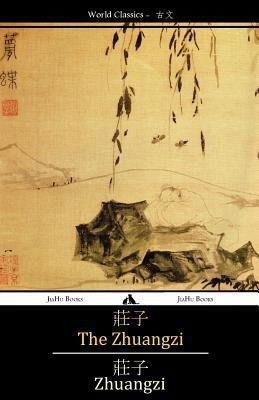
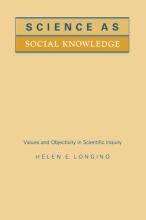
Science as Social Knowledge by Helen Longino
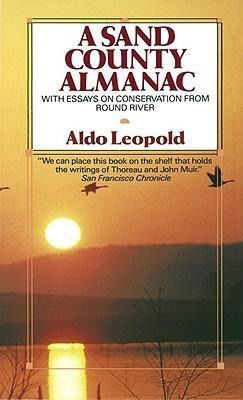
A Sand County Almanac by Aldo Leopold

A Feeling for the Organism by Evelyn Fox Keller
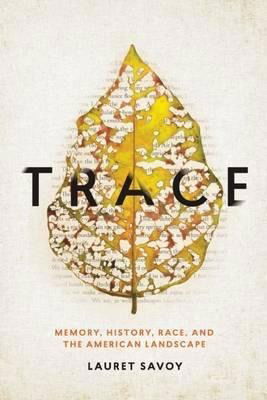
Trace: Memory, History, Race, and the American Landscape, by Lauret Savoy
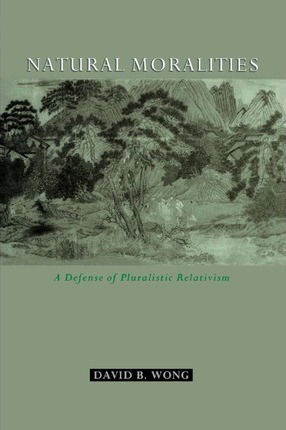
Natural Moralities by David Wong

ABOUT THE INTERVIEWER
Richard Marshall is biding his time.
Buy his new book here or his first book here to keep him biding!
End Times Series: the index of interviewees